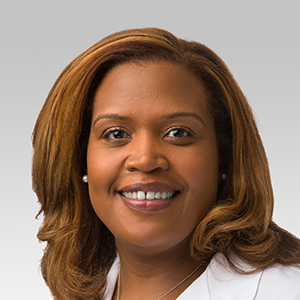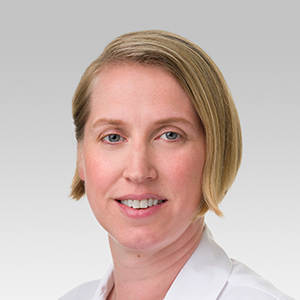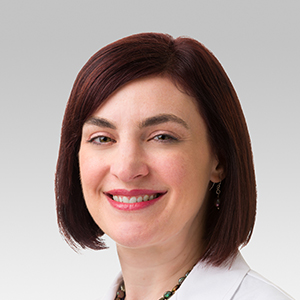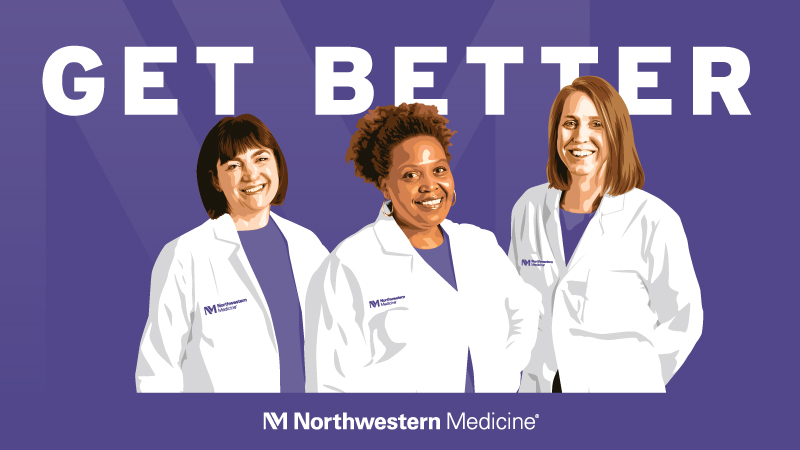SEASON 1 EPISODE 13
Get a Season Recap [Podcast]
Looking Back on Season One of Get Better
Published June 2022
About this Episode
Our hosts wrap up the first season of the Get Better podcast by discussing what they learned about their health and each other and what they hope to learn in season two.
About the Get Better Podcast
Living a healthier life is a journey with no final destination: You can always get better.
Susan Russell, MD, Khalilah Gates, MD, and Michelle Prickett, MD, are three pulmonologists at Northwestern Medicine who help people get better from critical illnesses. They are also lifelong friends and lifelong learners who want to get better from head to toe.
These three physicians will learn alongside you as they interview other Northwestern Medicine experts about health and medicine topics meant to help you achieve better health.
Listen
Disclaimer: This podcast does not substitute for medical advice from a clinician.
Transcript
Russell [00:00:02] Let's get stronger.
Gates [00:00:04] Healthier.
Prickett [00:00:04] Calmer.
Russell [00:00:05] Smarter.
Gates [00:00:06] Better.
Russell [00:00:07] Living a healthier life is a journey, not a destination.
Gates [00:00:10] You can always get better.
Prickett [00:00:12] Let's get better together.
Russell [00:00:21] Hi. I'm Dr. Susan Russell.
Gates [00:00:23] And I'm Dr. Khalilah Gates.
Prickett [00:00:24] And I'm Dr. Michelle Prickett. And we are at the end. This is season one. Wrapping up. What a journey, ladies. I don't think these last couple of years have been anything we planned on, and this certainly wasn't something that I thought we'd be doing. But I have had a wonderful time recording these, getting a chance to see you all again, and then talking about some topics that we don't get the opportunity to really put out there or talk about. So I'm grateful.
Russell [00:00:50] That was one thing that's impressed me this year over the course of recording this, is that it's so easy to be pigeonholed in your own specialty and you forget, like, the diversity of health and medical knowledge that's out there. And there's a lot of great talent at Northwestern Medicine. And I was so impressed by the passion that each of the people we talked to have for their specialty and the topic that we discussed.
Gates [00:01:18] I've really enjoyed this first season. We talk a lot about the bad of COVID, but I really do think that this podcast and what we've been able to accomplish really shows and highlights the positives of COVID, right? COVID forced us to stretch ourselves in so many different ways, and I can speak for myself, but I think you all probably share similar feelings of that, this podcast was just another way in which we were willing to stretch and adapt and seize the opportunity to provide information and just take advantage of the things that were coming our way. So I'm super excited about the way this season has gone, about being able to spend time with you ladies that we actually haven't really gotten to do over the last couple of years and learning in the process, and our guests have been wonderful.
Prickett [00:02:13] I think that's absolutely true. I think the connection is the biggest issue. COVID certainly made us go in different directions, but I think it's really nice that we were able to connect in different ways. And this being one medium that allows us to connect and to connect to a broader audience, to show the humanity in medicine. Right? Like we're people, too, and we have conversations and we want to learn. And it was so nice to be able to connect and meet new physicians and patients that help to teach us about topics that we may know a little bit about, but got to really know from their passions, expertise and input.
Russell [00:02:45] So what do you think you guys have learned from this season or, kind of, a topic that you felt like you didn't know as much or uncomfortable about that has really opened up from doing this podcast?
Gates [00:02:57] I think I learned what I didn't know, right? And all of the topics we talked about, right? You're like, "Oh, right." Minus the COVID stuff. Like I, you know, there was so much information out there that I wasn't 100% clear about and saw how much it was applicable to me. Like, I'm getting ready to be 45 soon. I know what's coming in August. I've had a year to think about it with the colonoscopy and, you know, with the podcast as a Black woman on Black women's mental health, those things that, one, I didn't necessarily know about and, two, that were so applicable to me, my family and my patients. And I feel that those things gave me the tools and the information to make a difference — a little bit more of a difference — at least in my patients who I see and know that these things affect them.
Russell [00:03:51] Yeah, I think that episode about mental health in Black women was one of the most powerful for me. Just at the end of that episode, I just wanted to high five somebody and give them a hug.
Gates [00:04:01] Fair enough.
Prickett [00:04:04] And I think that's true. I think for me, the transgender, that episode was really helpful to see that perspective and seeing what the options are, seeing how other people see the world and are seen by the world, and how we can make a difference as a community, and as a health care community really was eye opening. The skin care also — got some good skin care tips, like, that was really helpful.
Gates [00:04:27] I was just at the drugstore.
Prickett [00:04:29] I know.
Russell [00:04:30] I know, I went straight up to the drugstore. I refreshed my skin care routine. I'm now eating avocado toast for breakfast occasionally, and I am looking forward to drinking that prep for the colonoscopy. Well, it really helped me because I did not realize that there are so many other options now other than just a colonoscopy. And there are some members of my family who are really hesitant about getting one. And, you know, so I was able to tell people, "You know, there's other things you can do. It's not like an all or nothing, although that's probably the best you could do." Things like the cologuard and whatnot, like, just talk to your doctor and tell them, you know, "I don't really want to do this, but maybe is something else an option?" So, you know, for me, with my family history, I'm colonoscopy or bust. Yeah. It was really helpful to me to just hear about what other things are now on the table that were not when I was going through medical school.
Gates [00:05:29] What did you learn about? What did we learn about each other that maybe we didn't know?
Prickett [00:05:34] The big learning and growth for me is saying, "Hey, embracing who you are and knowing that there's other people out there that are different. And we want to be able to embrace them in their whole self as well." And so that that creates an opportunity to learn. I think we learn from so many different ways and different people. And I've enjoyed learning with you. You all, I mean, we've been learning for a long time together in different ways. But this was a great — a new change, an opportunity to get to know you a little bit better.
Russell [00:06:00] As someone who is feelings-averse, so I don't like talking about feelings. I felt like this podcast has really helped me understand how much we have in common as friends. And specifically doing the COVID episode, I heard so many people in health care came up to me or emailed us or said something about how that really resonated with them. And I'm really glad that we were able to open up about our feelings in that way and give people in the health care community a chance to kind of reflect on that and connect. And I don't think I really, truly acknowledged the extent of stress and the toll mentally, although everybody's talked about it, and I've talked about it, of the pandemic on health care workers just across the board, like every single person. And that the response that we got from that episode in particular really taught me a lot about human connection and what it means to have gone through this pandemic.
Gates [00:07:09] And I've just been, I don't think I learned necessarily anything new about you ladies, more so just reiterating how I already knew that you were special and really just honest, sincere women who want the best for your patients, but also you want the best for the people around you and the best meant being vulnerable, being open to say, "I don't know," to ask questions and then to see it come out in other ways. And showing growth and applying the knowledge that we've learned has actually been very impressive and very fun to kind of watch and be a part of. So I didn't learn anything new. I always knew that we were all capable, but just to see it and the impact of it has been awesome for me.
Prickett [00:08:01] What's our big takeaways from the season? What are you guys going to hold on to? Like, what are you coming away from? Other than our time together and the learning, what are your big takeaways?
Gates [00:08:10] My biggest takeaway is that there is so much in medicine we think people understand about various topics, but then when you start to dissect them a little bit more and get more information, you learn that we only are very minimally touching the surface for people. And we do need to really think about the importance of slowing down and providing patients, people in general, with information that really matters and helps change the way we think about things that will ultimately impact their lives.
Russell [00:08:45] I think I learned, as much as I think I'm passionate about something that's related to pulmonary medicine, there's somebody else out there and whatever you can name — both at Northwestern Medicine, I'm sure other institutions — who has that same passion and can break things down and explain things for you in a way that's understandable. And if you are seeking knowledge, all you have to do is ask. And those people will be more than happy to talk to you about whatever it is that just drives them day to day. One of the biggest takeaways for me is that we should keep doing this because it's been a lot of fun to just hear people talk about how important these issues are for them, that whatever it is that they specialize in.
Gates [00:09:34] And if I may add, not only how important it was for them, but how easily they signed up and said yes because they want to get the information out. We didn't have to ask multiple times and even had people are like, "When is my chance on the podcast?" Right?
Russell [00:09:51] Exactly. Yeah.
Gates [00:09:53] Like, "When are you going to talk about this?" And so, I think that just shows the passion that our colleagues have to really just educate and get that information out there.
Prickett [00:10:04] Most people that go into health care go in there because they want to connect with people they want to help. This pandemic has really separated us physically, but brought us closer together in terms of ability to communicate. Now there's a list, and we've got other topics that we can bring up for season two, if you can believe that is on the horizon.
Russell [00:10:23] So what are we going to learn about next season?
Prickett [00:10:26] Well, I think there was a lot of discussion about, you know, gynecological issues. And we talked about reproduction, but we didn't talk about menopause. We got to put menopause and fertility and even some pelvic floor issues. I think that was something that we really wanted to, you know, we just for the sake of time, we got to extend those out. So those are some topics that I think would be really helpful to, again, share openly and vulnerably and get to know what the latest information is.
Gates [00:10:53] Looking forward to having our colleagues on to talk about sleep and the importance of it and what the lack of it does.
Russell [00:11:01] And then we talked about depression especially and its impact in the last couple of years. But the flip side and, kind of, the other hand of that is anxiety. So I think we'll be talking about that as well. Not too far away from it, the last couple of years have been hard for people in terms of handling their behaviors towards alcohol and drinking. So we'll be talking about that also.
Prickett [00:11:25] There's a lot more to come. There's so many topics I'm really looking forward to, you know, meeting new people, too. And there's a lot of colleagues that, you know, that we work with that we don't get to interact with. So this is a way to get to know them better. Let the world know them better. Let our listeners know that there's good, nice providers out there. And I hope that we can expand beyond our physician and patients and get some nurses in here and get some respiratory therapists in here and other members of our health care team to really see their see life through their lens, learn from them and show everyone just there's a whole lot of caring in a whole lot of different individuals that come with a variety of different expertise, all to make us feel better in life. That was really emotional. I got really philosophical on that one. So, you know, no, no, I just learned something about myself there. I got real philosophical.
Russell [00:12:19] But yeah, I think that's been the best part of the podcast is either talking to people that I haven't spoken with in a long time or anybody who agrees to do this is a personable physician or a patient who can speak eloquently. So I am hoping that next season will help bring even more of that kind of connection and having people all across Northwestern Medicine, even beyond, kind of feeling like they can connect to each other across different specialties. With that, thank you so much to our listeners for joining us this season. We look forward to next season where we'll discuss more health topics from sleep to fitness to menopause. Until then. Thanks for listening to Get Better.
Gates [00:13:06] We hope you leave this podcast better than when you started.
Prickett [00:13:10] For more information, visit NM.org/healthbeat.






